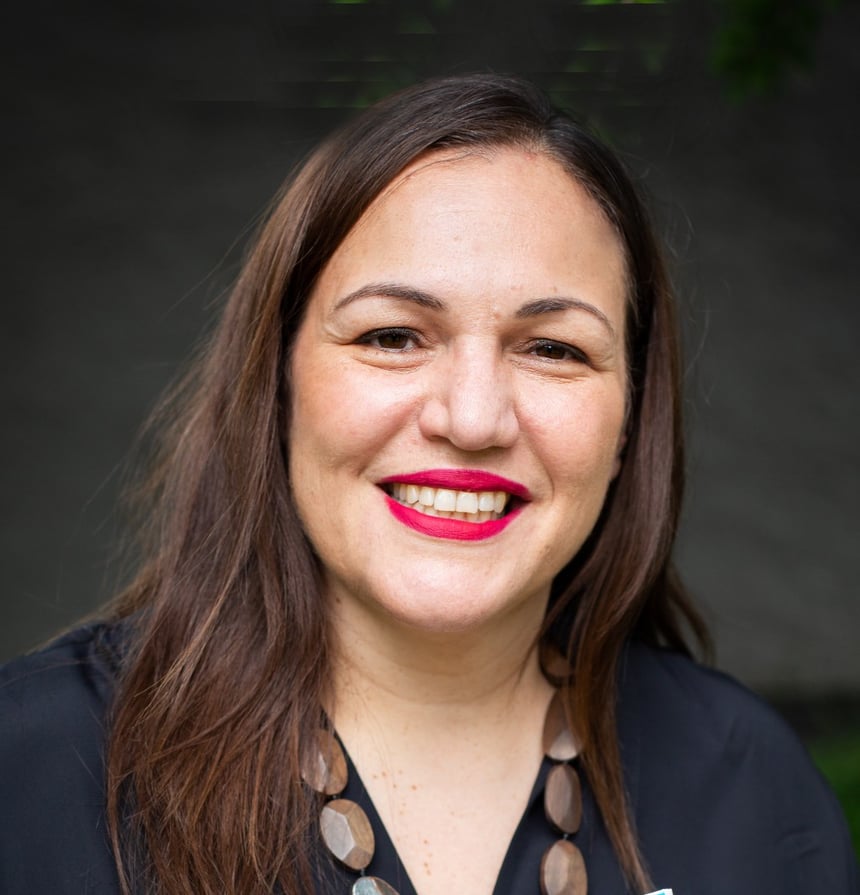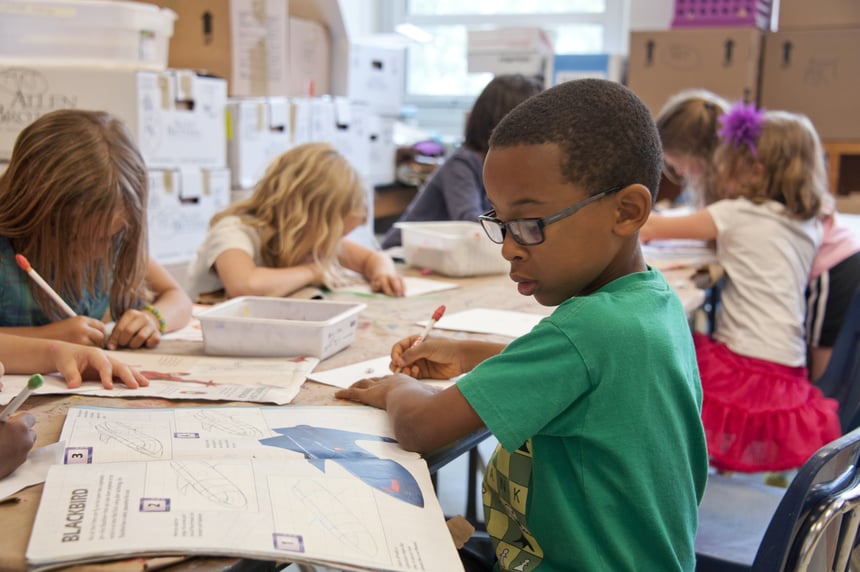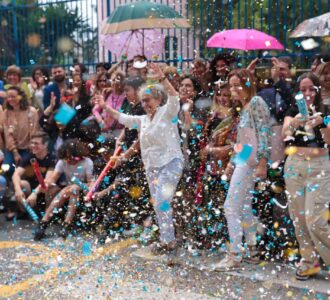Salman Shaheen speaks to award-winning British teacher Andria Zafirakou MBE about her new book, Lessons in Life, and her insights on how building a strong school culture is the key to setting students up for success.
Andria Zafirakou, Associate Deputy Headteacher at Alperton Community School in Brent, West London, has been hailed as one of the world’s best teachers after she redesigned the curriculum and found innovative ways to engage students in her highly diverse community where over 130 languages are spoken. Her services to education and young people were recognised when Her Late Majesty Queen Elizabeth II conferred Andria the MBE in the New Year Honours List 2019. Andria has also been named in the top ten of London’s biggest newspaper, The Evening Standard’s, 1000 Londoners List and she serves on the Judging Academy of T4 Education’s World’s Best School Prizes. Having sat down with some of the best educators from all over the world for her new book, Lessons in Life, Andria is an authority on what works in the classroom. We spoke with her to discuss the things she learned writing her new book and the importance of a strong school culture and good leadership in setting young people up for success.
Salman Shaheen: Why do you think it’s important for schools to have a good culture?

Andria Zafirakou: Having a good culture means schools are able to be consistent in saying: this is how we do things here, this is how we make learning happen, this is how we achieve success, this is how we support our students, this is how we do this. And by having a unanimous voice and by having systems in place and buy-in, by everyone, that means that you can have a really good opportunity to do what you can for every young person to thrive in their journey in school.
Salman Shaheen: How would you define a good school culture?
Andria Zafirakou: A good school culture for me is quite simple. It’s a school culture whereby staff and young people, and everyone who’s part of that school community, agrees what the values are, what the messages are, and can see and can notice success through both the teachers and also the young people. So everyone is gaining something from being part of this organisation.
Salman Shaheen: And how important do you think the school’s leadership is in instilling those values?
Andria Zafirakou: It has to come from the school leadership. It is all about the school leadership, and this is why I think school leaderships have got to be very strong and coordinated and understand exactly what the culture is that they want their schools to have and I know that it can vary. There are many different types of schools, they could be literally next door to each other, and they can have very different types of cultures and that’s okay. But the idea is that what you’re trying to do is build an environment where everyone is singing from the same hymn sheet as it were and that everyone’s buying into those values which are part of the vision of the school.
Salman Shaheen: What kind of difference do you think school culture makes in terms of recruitment and retention of teachers?
Andria Zafirakou: A massive deal because I would like to work in a school where I know that I am feeling valued, where I’m being supported, there is a good network of opportunities for me to develop professionally. Whereby I’m constantly learning from other colleagues, and I feel that I’m able to give my best to the young people. I want to work in a culture whereby I know it’s going to be challenging. And I want the school culture to be transparent. I think that this is what’s going to help you gain the staff. But also retain them, which as you know, is a massive crisis at the moment.
But school leaders have got to be absolutely key, and they’ve got to walk the walk. They’ve got to talk the talk. There’s no point in them saying: we want this, we want you to do this, but they’re not leading the way and doing the same thing in their own practice. So yeah, culture is vital and if one person does not do it, then you’re creating weak links in your school. And so the good thing about having a culture where everyone buys into it and everyone agrees to, it is something which is shared and acknowledged from the outset, from the moment you walk into that school building, you know then you’re all in the park, the same team.

Salman Shaheen: So what are the top tips you would give school leaders in building a great school culture?
Andria Zafirakou: Step one is to identify what it is that your vision is. So what is it that you want every child to have when they leave that school? Once you know what your vision is and what your aims are, then you can start putting systems in place, which will enable you to naturally have a school culture.
So for example, if I’m the leader of a very challenging school, where behaviour is not great and there’s lots to do there, I’ll try and make sure that my vision is really aspirational. So that a child when they go into the school can think, actually, I really want someone to invest in my growth, invest in supporting me. And that then is also shared with the staff so that they understand what that would look like. What does it look like to be aspirational? What does it look like to be committed to a young person and their journey? How will that work for you? So first of all, understanding what it is you want as a school community. How are you going to get the buy-in from the students? How you’re going to sell it? How do they fit into that puzzle? And then also how do your staff fit into that puzzle to make it forward? So I think that’s the biggest thing.
What you should not be doing is saying this is our school culture, we want this to happen, and then as a leadership team you don’t ensure that happens, that you don’t follow things up, you don’t check, you don’t monitor, you don’t communicate with staff, you know, you just let things fall down.
And ideally, the ultimate goal is that when you’re walking into a school, you’re asking one child, what is it all about? What is our vision, what’s our values? Every single member of the school community should be able to recite those words back to you whatever it is. Once that happens, you know, you’ve got a good culture.
Salman Shaheen: So, Andria, you’ve got a new book out, Lessons in Life. Tell us what inspired you to write it?

Andria Zafirakou: When I first wrote my first book, Those Who Can, Teach, I was really inspired by the feedback I was getting from teachers all over the world who were really connecting with the stories that I had in that book with those students. And the first book was all about me talking about my students and their journeys and how I worked with them and how I was inspired by my young people and how it made me a better teacher.
And I thought, actually, there are better teachers out there than me and I want to talk about their stories and so Lessons in Life really it’s like an interview where I invite and I speak to 30 different teachers. The best educators from all over the world. And I asked questions like: who are the kids, who are the young people who made you a better teacher? Who are the children who changed your life? And readers are invited into their world, into their countries, into their classrooms, and have a completely inspiring journey with them of how they do things in their world.
It’s about sharing good practice, but also the fascinating thing is the other stuff, which could be cultural influences that have an effect on how you deliver things and how you teach things and it could be historical issues. It could be social issues, economic issues, and yet, what we learn is that there are just these humans in this world called teachers, educators, they are so selfless and go above and beyond and have got this problem-solving mindset to make sure they reach the child who is going struggle, or who is bullied, or who has had the worst traumatic life. And they say I’m gonna fix something in their lives, which will help them have a better journey and that’s what we hear about. I think it’s made me a better person.
Salman Shaheen: What’s the most surprising thing you learned from all the conversations you had?
Andria Zafirakou: The surprising thing was how many of these incredible colleagues had battles and barriers which were enforced on them by the schools, which was almost like saying: ‘No, we do things like this’. And as a result of that, they were restricted in how they would problem-solve. But they broke the mould. They were mavericks in terms of trying different things, or pioneers in some cases. And as a result of having taken those risks and being really brave, that’s helped them to find a new way, a different way. And it may just have an impact on one human being, but you know, that’s enough.
Transform your school culture with our Best School to Work programme



